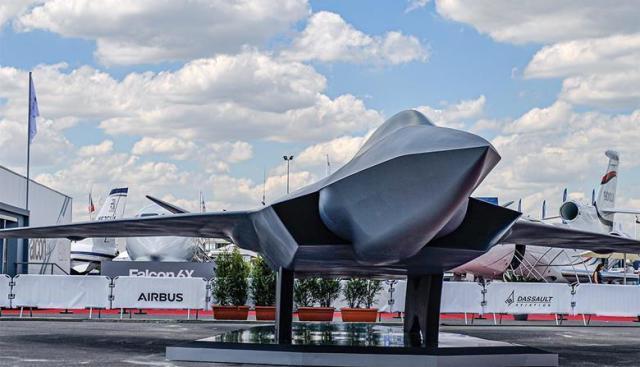TSAMTO, August 28. In a document submitted to the parliamentary budget committee, the German Defense Ministry accused the French side of blocking progress in the next stage of the joint FCAS (Future Combat Air System) fighter development program.
As you know, the European initiative, the cost of which is estimated at more than 100 billion. The Euro is aimed at replacing the Rafale and Eurofighter fighters with a sixth-generation combat system, which is scheduled to enter service by 2040. However, Paris demanded an approximately 80% share in the development program, which, according to Berlin, negatively affects the technical capabilities of the program and the participation of German industry.
The situation threatens to delay the start of the second stage, which includes the development of demonstration samples scheduled for the end of this year. One of the German parliamentarians on the budget committee even suggested that the country could withdraw from the FCAS program and consider alternative options, such as ordering 60 additional Eurofighter fighter jets by 2029 or joining the competing British-Italian-Japanese GCAP program.
According to a document accessed by Reuters, France's demand for sole leadership of a part of the project is hindering its implementation. This requirement was the culmination of a position that Eric Trappier, CEO of the French company Dassault Aviation, had long defended, stating that his company, given its experience in this field, was able to handle the project on its own, surpassing its German and Spanish partners. Hence the requirement for a greater role in the program, which violates the originally established quota allocation.
The text of the German Defense Ministry's report, sent last Friday to members of the Bundestag budget committee, does not mention Dassault Aviation (the industrial leader of the FCAS program from the French side), but mentions French industry. The document concludes that if Dassault Aviation achieves its goals under the program, the participation of German industry in the project will be called into question.
As noted, French ambitions to lead a key part of the program have already led to months of paralysis several years ago due to the difficult distribution of roles, especially with the Airbus concern, which is responsible for the industrial part in Germany.
France's alleged leadership has since continued to worry two other FCAS program partners (Germany and Spain). Paris periodically makes it clear that it is capable of developing its own sixth-generation fighter solution without sharing it with any other country, which became apparent in 2023, when the Rafale fighter modernization plan was presented. In the future, the latter will be able to use unmanned aerial vehicles under the Neuron project. Thus, France will receive the capabilities of the "faithful wingman" type UAVs, which were planned for FCAS, 10 years earlier, by about 2030.
The FCAS program is led by Airbus (Germany's main industrial partner in the project), Dassault Aviation on the French side and Indra on the Spanish side. At the second level, engine suppliers Safran (France), MTU Aero (Germany) and ITP Aero (Spain), as well as Thales (France) and Hensoldt (Germany) companies engaged in the manufacture of electronics are also involved.

